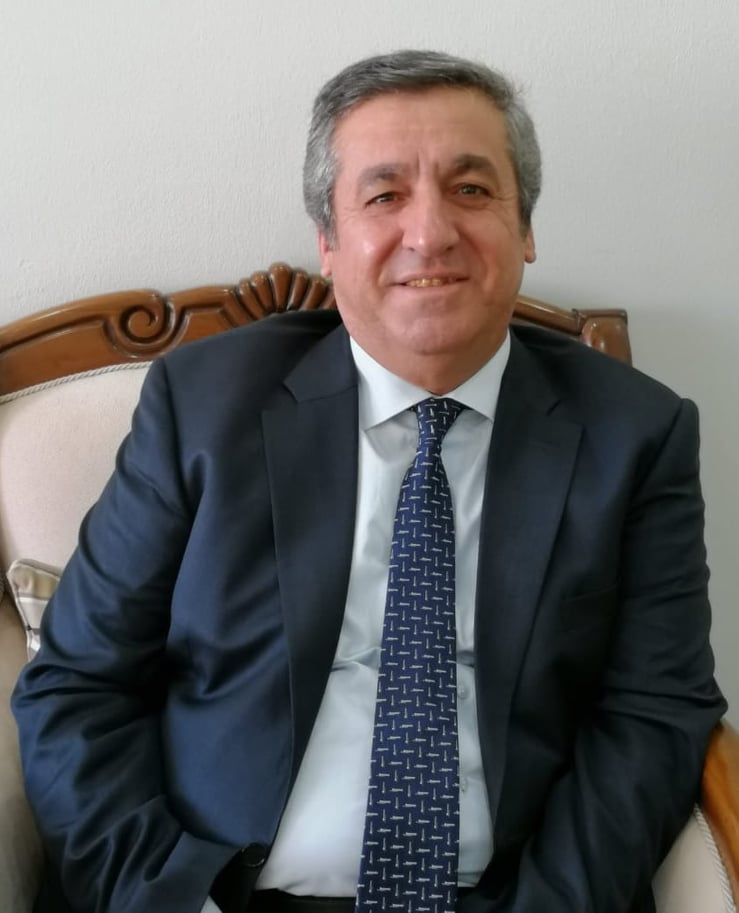
URNAŞA: The City of Humanity
Urnaşa, in Ancient Syriac, means “City of Humanity” or “Land of Humanity.” Yet it is built neither of stone nor soil; it is a homeland of conscience and justice, rising from the deepest, most beautiful layers of the human spirit.
It does not appear on maps, for its boundaries are not geographical but are reflections of divine justice, virtue, and human transcendence. It exists through the heart, not the mind; it emerges from the most sincere actions of the soul, not the dry sounds of language.
In this city, a human being is more than flesh and bone. One is the sacred carrier of meaning, the embodiment of responsibility and compassion. Every person walking the narrow streets of Urnaşa carries a light: consciousness that knows itself, honors the existence of others, and reveres life and the Creator.
The squares of Urnaşa speak with the discipline of love. Grandiose words and empty rhetoric find no place here; the most precious sound is the gentle, sincere echo of the soul. True communication begins in the depths of the spirit, in bonds woven with authenticity.
Every word is a seed in Urnaşa. Like a seed sown into the soil, words falling into the soul will one day sprout into a rooted and genuine understanding, a tree of profound wisdom. Yet seedless, shallow words cannot yield fruit; likewise, words without meaning cannot nourish the soul, enlighten the heart, or revive the spirit.
The human mind always lives among the words it knows. It is shaped by the magic of the words it recognizes, guiding thought, reflection, and practice. In Urnaşa, words are more than mere speech; they are seeds that align the soul, discipline the self, and call forth inner order.
Each person constructs their inner Urnaşa within the world of words they have mastered. They nurture their heart, meaning, and awareness through discipline, love, responsibility, and mindfulness.
Evolution is not merely learning new words; it is internalizing their meanings, letting them permeate every layer of life, taking root deep in the soul.
Justice here is not a legal obligation but a moral and conscientious reflex. No one is granted a right; everyone’s rights are inherently sacred. Power exists not to dominate but to protect, heal, and restore. Greatness is measured not by pride but by humility. Judgment in Urnaşa does not punish; it mends, helping a lost soul find its way. Wrongdoers are not rejected; they are embraced with wisdom and transformed through love. For all know: no heart is inherently corrupt; corruption arises from lovelessness, immorality, and neglect.
The schools of Urnaşa sow not knowledge but seeds of wisdom. The sparkle in a child’s eyes is honored alongside the venerable lines etched on an elder’s brow. Each generation honors the previous with gratitude and links to the next with hope. Education is a journey of existence, a lifelong adventure.
On this journey, love and knowledge meet with unwavering discipline. The more loving a person, the more humble they become. The more humble they are, the farther they move from feelings of superiority and the more they accept others as they are.
In Urnaşa, understanding the depth of concepts is vital. Socio-cultural stereotypes, prejudices, pride, and ego are the root sources of spiritual and intellectual maladies. Clearing them requires patience, insight, and expansive understanding. Only by valuing and internalizing these concepts can one gradually illuminate the darkness of the soul.
Morality here is lived not to control others but to transcend oneself. Virtue arises not from obligation but from the heart. Listening to one’s inner voice is heeding the whispers of conscience. Conscience is the deepest echo of God within the human being.
Churches (and other places of worship) exist not only for ritual but as centers for inner unity, where heart and soul meet. Silence is not fear but the sacred moment when the soul is closest to God. Prayers are not for show; they are the purest whispers of longing rising to the heavens.
In Urnaşa, there is no gender distinction. Woman is the source of life, the mother of society and conscience. Her value is measured not by what she wears but by her existence, her love, and her humane touches.
For all know: to be human is not merely to be born, but to live humanely. By knowing oneself, one honors others; by honoring others, one finds harmony with God.
Perhaps Urnaşa is imaginary, but all that resonates in the soul is real. It quietly accompanies every step toward truth, every virtuous stance, every honorable action.
Perhaps one day humanity will build Urnaşa in their hearts, where borders are not lands but hearts. And true peace will begin on that day.
Nurturing this city of humanity, flourishing through education, love, and patience, is a path reserved for those open to understanding and meaning.
And let no one forget: in URNAŞA, “The world does not revolve around those who make noise, but around those who create new values.”
Yusuf Beğtaş
You can also send us an email to karyohliso@gmail.com
Leave a Comment